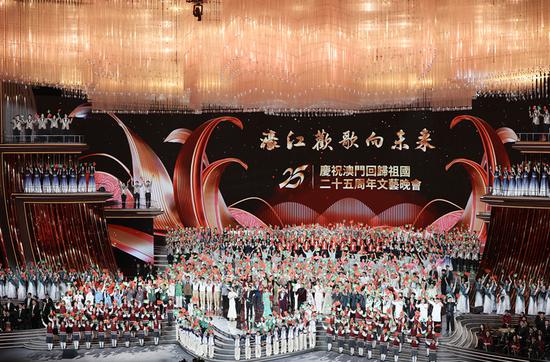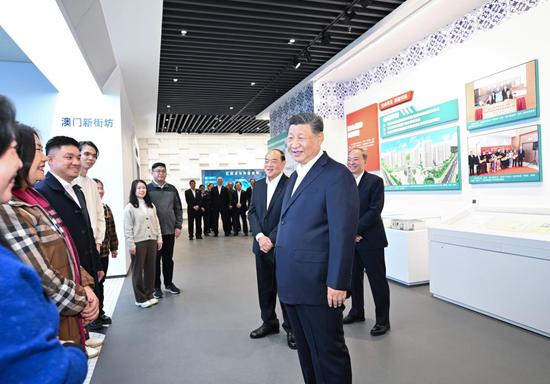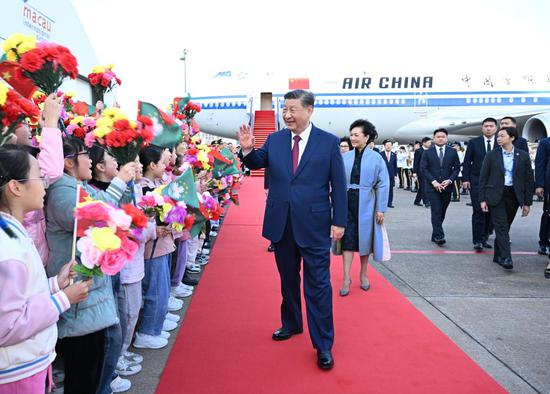
A view of a property project under construction in Yantai, Shandong province, in September. (TANG KE/FOR CHINA DAILY)
China rolled out a number of policy measures in 2024 designed to reduce financial burdens and ease access for homebuyers, while also arresting the recent downturn in the country's real estate sector and guiding the industry toward a more sustainable development path, analysts said.
Going forward, more forceful steps need to be taken to sustain recovery momentum in the real estate sector, they said, stressing that expanding the supply of government-subsidized housing and accelerating the redevelopment of urban villages will be high on the government work agenda, as well as addressing people's evolving preferences for improved living environments.
Amid China's dedicated efforts to fine-tune housing policies, new home sales in 30 key cities monitored by the China Real Estate Information Corporation in November reached a new high this year, rising 3 percent from the previous month and 20 percent year-on-year.
Meanwhile, the market for secondhand homes in a number of major cities saw a notable surge in November, with Beijing, Shanghai, and Guangzhou and Shenzhen in Guangdong province, as well as some provincial capitals, recording the highest sales volumes in recent times, according to data from real estate agencies.
The housing market is clearly responding positively to this coordinated policy support, said Wen Bin, chief economist at China Minsheng Bank.
In mid-November, policymakers in various cities such as Beijing, Shanghai and Shenzhen unveiled new preferential tax policies aimed at lowering transaction costs for homebuyers, the latest step in a broader bid to stabilize the country's real estate market.
The new measures came after a raft of policy changes for the property sector at the end of September, including a cut in the minimum down payment ratio to 15 percent for all housing categories and a relaxation in home purchase restrictions.
Foot traffic at new home sales centers, as well as the number of viewings for pre-owned properties, have seen notable upticks in recent weeks, which could be translated into potential sales activity, said Chen Wenjing, director of market research at the China Index Academy.
This signals that consumer sentiment toward the real estate market has been improving after an extended period of uncertainty, Chen added.
Looking ahead, it's imperative to exert sustained efforts to ensure a stable recovery next year, as outlined during the annual Central Economic Work Conference where the nation's policymakers set the policy agenda for the world's second-largest economy in mid-December.
Luo Zhiheng, chief economist at Yuekai Securities, said that the central government could establish a real estate stabilization fund amounting to 2 trillion yuan ($274 billion), financed through government bond issuances.
The fund should be deployed across several key areas, with a top priority to ensure that homes under construction are finished and handed over to buyers, as well as acquire existing home inventory and land reserves from struggling developers, Luo said.
Local governments are not able to handle this alone. Therefore, the national-level stabilization fund will provide much-needed firepower to address developer defaults and restore household confidence, thus further helping stabilize the downward spiral in home prices, Luo said.


















































 京公网安备 11010202009201号
京公网安备 11010202009201号